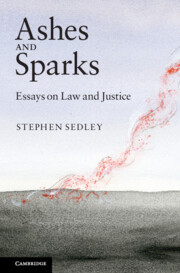Book contents
- Frontmatter
- Contents
- Preface
- Acknowledgements
- PART I History
- 1 Victors' justice
- 2 Above it all
- 3 Reading their rights
- 4 From victim to suspect
- 5 Farewell sovereignty
- 6 No law at all
- 7 The sound of silence
- 8 The spark in the ashes
- 9 Wringing out the fault
- 10 Everything and nothing
- 11 Skulls and crossbones
- PART II Law
- PART III Justice
- Index
3 - Reading their rights
Published online by Cambridge University Press: 05 June 2012
- Frontmatter
- Contents
- Preface
- Acknowledgements
- PART I History
- 1 Victors' justice
- 2 Above it all
- 3 Reading their rights
- 4 From victim to suspect
- 5 Farewell sovereignty
- 6 No law at all
- 7 The sound of silence
- 8 The spark in the ashes
- 9 Wringing out the fault
- 10 Everything and nothing
- 11 Skulls and crossbones
- PART II Law
- PART III Justice
- Index
Summary
This essay was a review, published in the London Review of Books in 2003, of two ostensibly unrelated books: The Origins of Adversary Criminal Trial, an account by the American legal historian John Langbein of the dramatic years (the years of William Garrow's ascendancy) when the English criminal process began to assume the form which it is often mistakenly assumed to have always had; and a practice manual, Archbold's International Criminal Courts, for a new and equally significant development – the trial of individuals accused of crimes against humanity before courts of international jurisdiction.
Thanks to the reforms prompted by Lord Justice Auld's report, the blanket rule against hearsay evidence has now gone and, subject to judicial control, juries are allowed to know the accused's criminal record.
Three hundred years ago an Englishman charged with, say, robbery could expect to be interrogated by a local magistrate, held in jail until the king's justices next rode in on circuit, arraigned before a jury of local property-owners on an indictment he had never seen, and tried in less than an hour. He would not be allowed legal representation even if he could afford it. He had no right to give sworn evidence in answer to the witnesses who – as the saying was – were swearing away his life. He was allowed to question them as best he could and then tell the jury from the dock why he was innocent.
- Type
- Chapter
- Information
- Ashes and SparksEssays On Law and Justice, pp. 29 - 41Publisher: Cambridge University PressPrint publication year: 2011



